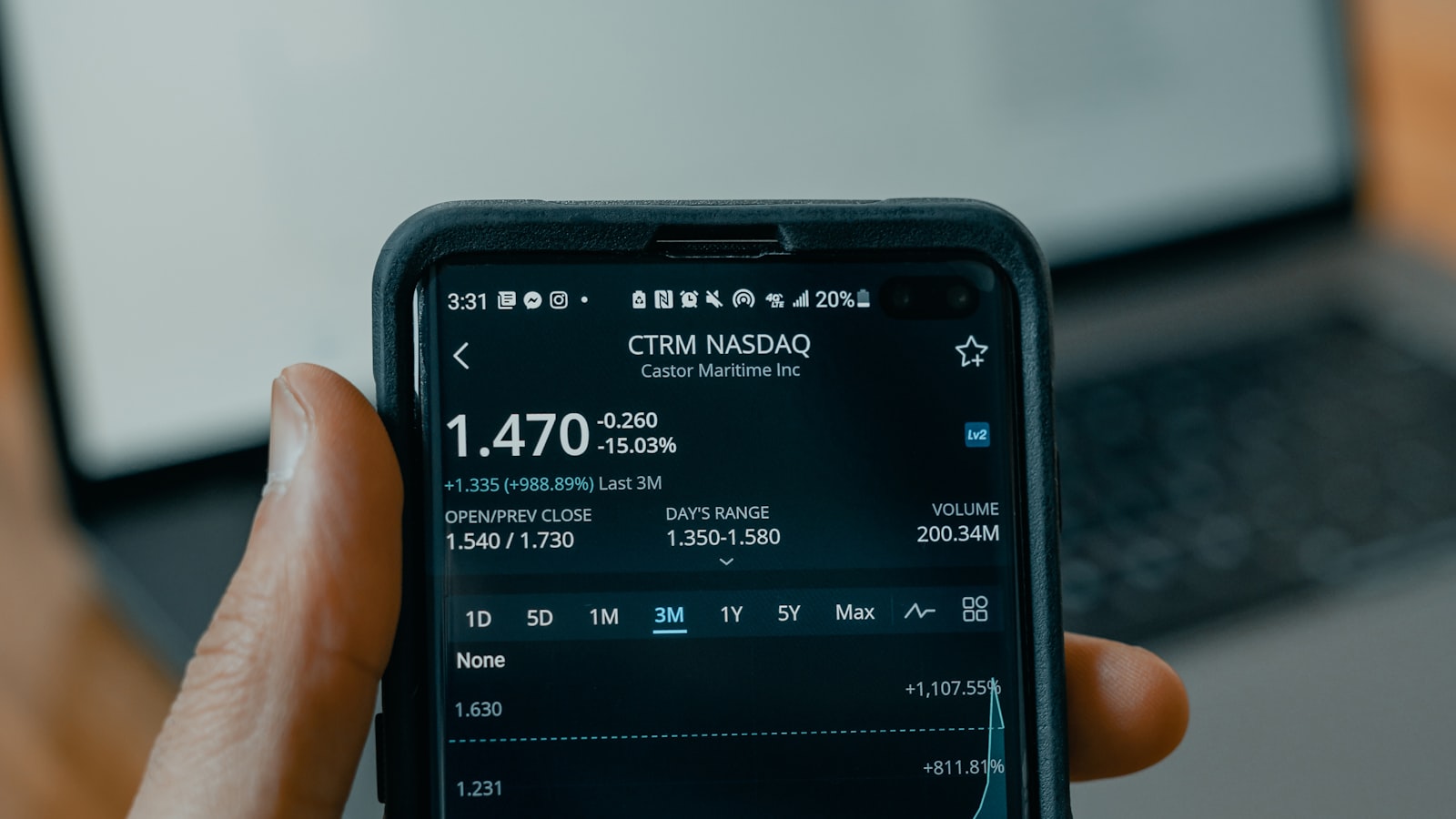How AI is Shaping the Future of SEO for SaaS Companies
How AI is Shaping the Future of SEO for SaaS Companies
How AI is Shaping the Future of SEO for SaaS Companies
Discover how AI is revolutionizing SEO for SaaS companies, shaping the future of digital marketing with innovative strategies and tools.
Discover how AI is revolutionizing SEO for SaaS companies, shaping the future of digital marketing with innovative strategies and tools.



Introduction to AI in SEO for SaaS Companies
Imagine a world where your SEO strategies are not just reactive but predictive, where your SaaS company can stay ahead of the competition by leveraging cutting-edge technology. This is not a distant dream but a current reality, thanks to the integration of artificial intelligence (AI) in SEO. AI is transforming the way SaaS companies approach search engine optimization, making it more efficient, accurate, and impactful.
Definition of Artificial Intelligence
Artificial intelligence, or AI, refers to the simulation of human intelligence processes by machines, especially computer systems. These processes include learning (the acquisition of information and rules for using the information), reasoning (using rules to reach approximate or definite conclusions), and self-correction. In the context of SEO, AI is utilized to analyze data, predict trends, and automate various aspects of the optimization process.
The Evolution of SEO and the Role of AI
SEO has come a long way from its early days of keyword stuffing and meta tag manipulation. Today, search engines like Google use complex algorithms to deliver the most relevant results to users. The future of SaaS SEO is increasingly being shaped by AI technologies that can process vast amounts of data, identify patterns, and provide actionable insights. Here are some ways AI is revolutionizing SEO for SaaS companies:
Content Creation: AI-powered tools can help generate high-quality content that is tailored to the target audience, improving engagement and conversion rates.
Keyword Research: Advanced AI algorithms can identify the most effective keywords to target, ensuring that your content ranks higher in search engine results.
Predictive Analytics: AI can forecast future trends and user behavior, allowing SaaS companies to stay ahead of the curve.
Automation: Many repetitive SEO tasks, such as on-page optimization and link building, can be automated using AI, freeing up time for more strategic activities.
How AI is Transforming SEO Practices
Benefits of AI for Data-Driven SEO Decisions
Artificial Intelligence (AI) offers numerous advantages for making data-driven SEO decisions. By leveraging AI, SaaS companies can:
Analyze Large Data Sets: AI tools can process vast amounts of data quickly, identifying trends and patterns that might be missed manually.
Improve Accuracy: Machine learning algorithms enhance the precision of keyword research, competitor analysis, and content optimization.
Predict User Behavior: AI can forecast user intent and preferences, allowing for more targeted and effective SEO strategies.
Automate Repetitive Tasks: AI tools can handle routine tasks such as reporting and monitoring, freeing up time for strategic planning.
Key AI Tools for SaaS SEO
Several AI tools are essential for optimizing SEO in SaaS companies. These tools include:
Google Analytics: Provides insights into website traffic and user behavior, helping to refine SEO strategies.
SEMrush: Offers comprehensive SEO tools, including keyword research, site audits, and competitive analysis.
Ahrefs: Known for its robust backlink analysis and keyword explorer, crucial for building a strong SEO foundation.
Surfer SEO: Analyzes top-performing pages and provides actionable recommendations for content optimization.
Examples of AI Tools for Content Generation and Optimization
AI tools are revolutionizing content generation and optimization for SaaS companies. Some notable examples include:
Jarvis (formerly Conversion.ai): Uses AI to generate high-quality content, from blog posts to ad copy, based on user prompts.
Grammarly: Enhances content quality by providing real-time grammar and style suggestions.
Frase: Helps create content that answers user queries by analyzing top-ranking pages and suggesting relevant topics.
MarketMuse: Uses AI to identify content gaps and opportunities, ensuring comprehensive and optimized content.
Case Studies Demonstrating AI Impact on SEO
Several case studies illustrate the significant impact of AI on SEO for SaaS companies:
HubSpot: By integrating AI-powered tools, HubSpot improved its keyword research and content strategy, leading to a 30% increase in organic traffic.
Zendesk: Utilized AI to enhance its content marketing efforts, resulting in higher engagement rates and improved search rankings.
Salesforce: Leveraged AI for predictive analysis, allowing for more personalized content and a 25% boost in lead generation.

Implementing AI in Your SaaS SEO Strategy

Guide to Integrating AI into Workflows
Integrating AI into your SaaS SEO strategy can seem daunting, but with a structured approach, it becomes manageable and highly effective. Here's a step-by-step guide to help you get started:
Identify Key Areas: Determine which parts of your SEO strategy can benefit from AI, such as keyword research, content optimization, and performance tracking.
Select the Right Tools: Choose AI tools that align with your needs. Tools like TechCrunch and HubSpot offer insights on the best AI tools for SEO.
Set Clear Objectives: Define what you aim to achieve with AI integration, such as improving search rankings, increasing organic traffic, or enhancing content quality.
Data Collection: Gather data from various sources to feed into your AI tools. This includes website analytics, keyword performance, and user behavior data.
Implement Gradually: Start with one aspect of your SEO strategy and gradually integrate AI into other areas to ensure a smooth transition.
Monitor and Adjust: Regularly review the performance of AI tools and make necessary adjustments to optimize results.
Tips for Training Teams on AI Tools
Successful AI implementation requires that your team is well-versed in using AI tools. Here are some tips for training your team:
Hands-On Training: Provide practical training sessions where team members can use AI tools in real-time scenarios.
Online Resources: Utilize online courses and tutorials from platforms like Search Engine Journal and Towards Data Science to enhance learning.
Regular Workshops: Conduct regular workshops to keep the team updated on the latest AI advancements and best practices.
Encourage Experimentation: Allow team members to experiment with different AI tools and techniques to find what works best for your SEO strategy.
Feedback Loop: Establish a feedback loop where team members can share their experiences and insights, fostering a collaborative learning environment.
Challenges and Solutions in AI Adoption
Adopting AI in your SaaS SEO strategy comes with its set of challenges. Here are some common challenges and their solutions:
High Initial Costs: AI tools can be expensive. Start with cost-effective tools and gradually invest in more advanced solutions as your budget allows.
Data Privacy Concerns: Ensure that your AI tools comply with data privacy regulations to protect user data.
Complexity of Tools: AI tools can be complex to use. Provide comprehensive training and support to help your team navigate these tools effectively.
Integration Issues: Integrating AI tools with existing systems can be challenging. Work with IT experts to ensure seamless integration.
Resistance to Change: Team members may resist adopting new technologies. Highlight the benefits of AI and provide continuous support to ease the transition.
For more insights on overcoming AI adoption challenges, refer to industry reports from organizations like Gartner and Forrester.
Creative AI Use Cases in SaaS SEO
Content Creation and Optimization
AI has revolutionized content creation and optimization for SaaS companies. Tools like ChatGPT and Jasper can generate high-quality content drafts, saving time and effort. These tools use natural language processing (NLP) to create engaging and relevant content that resonates with your audience.
For optimization, tools like Surfer SEO and Frase analyze top-performing content and provide actionable insights to enhance your articles. They help in structuring content, optimizing keywords, and ensuring it meets search engine requirements.
Keyword Research and SERP Analysis
Keyword research is essential for any SEO strategy. AI-powered tools like Ahrefs and SEMrush simplify this process by providing comprehensive data on keyword difficulty, search volume, and competition. These insights help SaaS companies target the right keywords to improve their ranking efforts.
For SERP analysis, tools like Thruuu and Frase analyze top-ranking pages for specific keywords. This analysis helps in understanding what type of content performs well and how to structure your content to achieve better rankings.
Voice Search and Image Optimization
With the rise of voice search, optimizing for voice queries has become crucial. AI tools like AnswerThePublic help identify common voice search queries, enabling you to tailor your content accordingly. This ensures your content is easily discoverable through voice search.
For image optimization, tools like Imagify and Cloudinary assist in compressing, resizing, and improving image quality. Optimized images enhance website performance and user experience, contributing to better SEO results.
User Behavior Analysis and Content Personalization
Understanding user behavior is key to refining your SEO strategy. AI tools like Google Analytics and Mouseflow provide insights into user interactions on your website. These insights help identify areas for improvement and optimize the user experience.
Content personalization is another powerful use case. AI tools can analyze user preferences and behavior to deliver personalized content. This increases engagement and conversion rates, as users are more likely to interact with content that resonates with their interests.
Predictive Analysis and Local SEO
Predictive analysis uses historical data to forecast future trends. AI tools like BrightEdge use predictive analytics to anticipate changes in search trends and user behavior. This allows SaaS companies to stay ahead of the curve and adjust their strategies proactively.
For local SEO, AI tools like Yext and Moz Local help optimize your online presence for local searches. They ensure your business information is accurate and consistent across various platforms, improving your visibility in local search results.

Introduction to AI in SEO for SaaS Companies
Imagine a world where your SEO strategies are not just reactive but predictive, where your SaaS company can stay ahead of the competition by leveraging cutting-edge technology. This is not a distant dream but a current reality, thanks to the integration of artificial intelligence (AI) in SEO. AI is transforming the way SaaS companies approach search engine optimization, making it more efficient, accurate, and impactful.
Definition of Artificial Intelligence
Artificial intelligence, or AI, refers to the simulation of human intelligence processes by machines, especially computer systems. These processes include learning (the acquisition of information and rules for using the information), reasoning (using rules to reach approximate or definite conclusions), and self-correction. In the context of SEO, AI is utilized to analyze data, predict trends, and automate various aspects of the optimization process.
The Evolution of SEO and the Role of AI
SEO has come a long way from its early days of keyword stuffing and meta tag manipulation. Today, search engines like Google use complex algorithms to deliver the most relevant results to users. The future of SaaS SEO is increasingly being shaped by AI technologies that can process vast amounts of data, identify patterns, and provide actionable insights. Here are some ways AI is revolutionizing SEO for SaaS companies:
Content Creation: AI-powered tools can help generate high-quality content that is tailored to the target audience, improving engagement and conversion rates.
Keyword Research: Advanced AI algorithms can identify the most effective keywords to target, ensuring that your content ranks higher in search engine results.
Predictive Analytics: AI can forecast future trends and user behavior, allowing SaaS companies to stay ahead of the curve.
Automation: Many repetitive SEO tasks, such as on-page optimization and link building, can be automated using AI, freeing up time for more strategic activities.
How AI is Transforming SEO Practices
Benefits of AI for Data-Driven SEO Decisions
Artificial Intelligence (AI) offers numerous advantages for making data-driven SEO decisions. By leveraging AI, SaaS companies can:
Analyze Large Data Sets: AI tools can process vast amounts of data quickly, identifying trends and patterns that might be missed manually.
Improve Accuracy: Machine learning algorithms enhance the precision of keyword research, competitor analysis, and content optimization.
Predict User Behavior: AI can forecast user intent and preferences, allowing for more targeted and effective SEO strategies.
Automate Repetitive Tasks: AI tools can handle routine tasks such as reporting and monitoring, freeing up time for strategic planning.
Key AI Tools for SaaS SEO
Several AI tools are essential for optimizing SEO in SaaS companies. These tools include:
Google Analytics: Provides insights into website traffic and user behavior, helping to refine SEO strategies.
SEMrush: Offers comprehensive SEO tools, including keyword research, site audits, and competitive analysis.
Ahrefs: Known for its robust backlink analysis and keyword explorer, crucial for building a strong SEO foundation.
Surfer SEO: Analyzes top-performing pages and provides actionable recommendations for content optimization.
Examples of AI Tools for Content Generation and Optimization
AI tools are revolutionizing content generation and optimization for SaaS companies. Some notable examples include:
Jarvis (formerly Conversion.ai): Uses AI to generate high-quality content, from blog posts to ad copy, based on user prompts.
Grammarly: Enhances content quality by providing real-time grammar and style suggestions.
Frase: Helps create content that answers user queries by analyzing top-ranking pages and suggesting relevant topics.
MarketMuse: Uses AI to identify content gaps and opportunities, ensuring comprehensive and optimized content.
Case Studies Demonstrating AI Impact on SEO
Several case studies illustrate the significant impact of AI on SEO for SaaS companies:
HubSpot: By integrating AI-powered tools, HubSpot improved its keyword research and content strategy, leading to a 30% increase in organic traffic.
Zendesk: Utilized AI to enhance its content marketing efforts, resulting in higher engagement rates and improved search rankings.
Salesforce: Leveraged AI for predictive analysis, allowing for more personalized content and a 25% boost in lead generation.

Implementing AI in Your SaaS SEO Strategy

Guide to Integrating AI into Workflows
Integrating AI into your SaaS SEO strategy can seem daunting, but with a structured approach, it becomes manageable and highly effective. Here's a step-by-step guide to help you get started:
Identify Key Areas: Determine which parts of your SEO strategy can benefit from AI, such as keyword research, content optimization, and performance tracking.
Select the Right Tools: Choose AI tools that align with your needs. Tools like TechCrunch and HubSpot offer insights on the best AI tools for SEO.
Set Clear Objectives: Define what you aim to achieve with AI integration, such as improving search rankings, increasing organic traffic, or enhancing content quality.
Data Collection: Gather data from various sources to feed into your AI tools. This includes website analytics, keyword performance, and user behavior data.
Implement Gradually: Start with one aspect of your SEO strategy and gradually integrate AI into other areas to ensure a smooth transition.
Monitor and Adjust: Regularly review the performance of AI tools and make necessary adjustments to optimize results.
Tips for Training Teams on AI Tools
Successful AI implementation requires that your team is well-versed in using AI tools. Here are some tips for training your team:
Hands-On Training: Provide practical training sessions where team members can use AI tools in real-time scenarios.
Online Resources: Utilize online courses and tutorials from platforms like Search Engine Journal and Towards Data Science to enhance learning.
Regular Workshops: Conduct regular workshops to keep the team updated on the latest AI advancements and best practices.
Encourage Experimentation: Allow team members to experiment with different AI tools and techniques to find what works best for your SEO strategy.
Feedback Loop: Establish a feedback loop where team members can share their experiences and insights, fostering a collaborative learning environment.
Challenges and Solutions in AI Adoption
Adopting AI in your SaaS SEO strategy comes with its set of challenges. Here are some common challenges and their solutions:
High Initial Costs: AI tools can be expensive. Start with cost-effective tools and gradually invest in more advanced solutions as your budget allows.
Data Privacy Concerns: Ensure that your AI tools comply with data privacy regulations to protect user data.
Complexity of Tools: AI tools can be complex to use. Provide comprehensive training and support to help your team navigate these tools effectively.
Integration Issues: Integrating AI tools with existing systems can be challenging. Work with IT experts to ensure seamless integration.
Resistance to Change: Team members may resist adopting new technologies. Highlight the benefits of AI and provide continuous support to ease the transition.
For more insights on overcoming AI adoption challenges, refer to industry reports from organizations like Gartner and Forrester.
Creative AI Use Cases in SaaS SEO
Content Creation and Optimization
AI has revolutionized content creation and optimization for SaaS companies. Tools like ChatGPT and Jasper can generate high-quality content drafts, saving time and effort. These tools use natural language processing (NLP) to create engaging and relevant content that resonates with your audience.
For optimization, tools like Surfer SEO and Frase analyze top-performing content and provide actionable insights to enhance your articles. They help in structuring content, optimizing keywords, and ensuring it meets search engine requirements.
Keyword Research and SERP Analysis
Keyword research is essential for any SEO strategy. AI-powered tools like Ahrefs and SEMrush simplify this process by providing comprehensive data on keyword difficulty, search volume, and competition. These insights help SaaS companies target the right keywords to improve their ranking efforts.
For SERP analysis, tools like Thruuu and Frase analyze top-ranking pages for specific keywords. This analysis helps in understanding what type of content performs well and how to structure your content to achieve better rankings.
Voice Search and Image Optimization
With the rise of voice search, optimizing for voice queries has become crucial. AI tools like AnswerThePublic help identify common voice search queries, enabling you to tailor your content accordingly. This ensures your content is easily discoverable through voice search.
For image optimization, tools like Imagify and Cloudinary assist in compressing, resizing, and improving image quality. Optimized images enhance website performance and user experience, contributing to better SEO results.
User Behavior Analysis and Content Personalization
Understanding user behavior is key to refining your SEO strategy. AI tools like Google Analytics and Mouseflow provide insights into user interactions on your website. These insights help identify areas for improvement and optimize the user experience.
Content personalization is another powerful use case. AI tools can analyze user preferences and behavior to deliver personalized content. This increases engagement and conversion rates, as users are more likely to interact with content that resonates with their interests.
Predictive Analysis and Local SEO
Predictive analysis uses historical data to forecast future trends. AI tools like BrightEdge use predictive analytics to anticipate changes in search trends and user behavior. This allows SaaS companies to stay ahead of the curve and adjust their strategies proactively.
For local SEO, AI tools like Yext and Moz Local help optimize your online presence for local searches. They ensure your business information is accurate and consistent across various platforms, improving your visibility in local search results.

Introduction to AI in SEO for SaaS Companies
Imagine a world where your SEO strategies are not just reactive but predictive, where your SaaS company can stay ahead of the competition by leveraging cutting-edge technology. This is not a distant dream but a current reality, thanks to the integration of artificial intelligence (AI) in SEO. AI is transforming the way SaaS companies approach search engine optimization, making it more efficient, accurate, and impactful.
Definition of Artificial Intelligence
Artificial intelligence, or AI, refers to the simulation of human intelligence processes by machines, especially computer systems. These processes include learning (the acquisition of information and rules for using the information), reasoning (using rules to reach approximate or definite conclusions), and self-correction. In the context of SEO, AI is utilized to analyze data, predict trends, and automate various aspects of the optimization process.
The Evolution of SEO and the Role of AI
SEO has come a long way from its early days of keyword stuffing and meta tag manipulation. Today, search engines like Google use complex algorithms to deliver the most relevant results to users. The future of SaaS SEO is increasingly being shaped by AI technologies that can process vast amounts of data, identify patterns, and provide actionable insights. Here are some ways AI is revolutionizing SEO for SaaS companies:
Content Creation: AI-powered tools can help generate high-quality content that is tailored to the target audience, improving engagement and conversion rates.
Keyword Research: Advanced AI algorithms can identify the most effective keywords to target, ensuring that your content ranks higher in search engine results.
Predictive Analytics: AI can forecast future trends and user behavior, allowing SaaS companies to stay ahead of the curve.
Automation: Many repetitive SEO tasks, such as on-page optimization and link building, can be automated using AI, freeing up time for more strategic activities.
How AI is Transforming SEO Practices
Benefits of AI for Data-Driven SEO Decisions
Artificial Intelligence (AI) offers numerous advantages for making data-driven SEO decisions. By leveraging AI, SaaS companies can:
Analyze Large Data Sets: AI tools can process vast amounts of data quickly, identifying trends and patterns that might be missed manually.
Improve Accuracy: Machine learning algorithms enhance the precision of keyword research, competitor analysis, and content optimization.
Predict User Behavior: AI can forecast user intent and preferences, allowing for more targeted and effective SEO strategies.
Automate Repetitive Tasks: AI tools can handle routine tasks such as reporting and monitoring, freeing up time for strategic planning.
Key AI Tools for SaaS SEO
Several AI tools are essential for optimizing SEO in SaaS companies. These tools include:
Google Analytics: Provides insights into website traffic and user behavior, helping to refine SEO strategies.
SEMrush: Offers comprehensive SEO tools, including keyword research, site audits, and competitive analysis.
Ahrefs: Known for its robust backlink analysis and keyword explorer, crucial for building a strong SEO foundation.
Surfer SEO: Analyzes top-performing pages and provides actionable recommendations for content optimization.
Examples of AI Tools for Content Generation and Optimization
AI tools are revolutionizing content generation and optimization for SaaS companies. Some notable examples include:
Jarvis (formerly Conversion.ai): Uses AI to generate high-quality content, from blog posts to ad copy, based on user prompts.
Grammarly: Enhances content quality by providing real-time grammar and style suggestions.
Frase: Helps create content that answers user queries by analyzing top-ranking pages and suggesting relevant topics.
MarketMuse: Uses AI to identify content gaps and opportunities, ensuring comprehensive and optimized content.
Case Studies Demonstrating AI Impact on SEO
Several case studies illustrate the significant impact of AI on SEO for SaaS companies:
HubSpot: By integrating AI-powered tools, HubSpot improved its keyword research and content strategy, leading to a 30% increase in organic traffic.
Zendesk: Utilized AI to enhance its content marketing efforts, resulting in higher engagement rates and improved search rankings.
Salesforce: Leveraged AI for predictive analysis, allowing for more personalized content and a 25% boost in lead generation.

Implementing AI in Your SaaS SEO Strategy

Guide to Integrating AI into Workflows
Integrating AI into your SaaS SEO strategy can seem daunting, but with a structured approach, it becomes manageable and highly effective. Here's a step-by-step guide to help you get started:
Identify Key Areas: Determine which parts of your SEO strategy can benefit from AI, such as keyword research, content optimization, and performance tracking.
Select the Right Tools: Choose AI tools that align with your needs. Tools like TechCrunch and HubSpot offer insights on the best AI tools for SEO.
Set Clear Objectives: Define what you aim to achieve with AI integration, such as improving search rankings, increasing organic traffic, or enhancing content quality.
Data Collection: Gather data from various sources to feed into your AI tools. This includes website analytics, keyword performance, and user behavior data.
Implement Gradually: Start with one aspect of your SEO strategy and gradually integrate AI into other areas to ensure a smooth transition.
Monitor and Adjust: Regularly review the performance of AI tools and make necessary adjustments to optimize results.
Tips for Training Teams on AI Tools
Successful AI implementation requires that your team is well-versed in using AI tools. Here are some tips for training your team:
Hands-On Training: Provide practical training sessions where team members can use AI tools in real-time scenarios.
Online Resources: Utilize online courses and tutorials from platforms like Search Engine Journal and Towards Data Science to enhance learning.
Regular Workshops: Conduct regular workshops to keep the team updated on the latest AI advancements and best practices.
Encourage Experimentation: Allow team members to experiment with different AI tools and techniques to find what works best for your SEO strategy.
Feedback Loop: Establish a feedback loop where team members can share their experiences and insights, fostering a collaborative learning environment.
Challenges and Solutions in AI Adoption
Adopting AI in your SaaS SEO strategy comes with its set of challenges. Here are some common challenges and their solutions:
High Initial Costs: AI tools can be expensive. Start with cost-effective tools and gradually invest in more advanced solutions as your budget allows.
Data Privacy Concerns: Ensure that your AI tools comply with data privacy regulations to protect user data.
Complexity of Tools: AI tools can be complex to use. Provide comprehensive training and support to help your team navigate these tools effectively.
Integration Issues: Integrating AI tools with existing systems can be challenging. Work with IT experts to ensure seamless integration.
Resistance to Change: Team members may resist adopting new technologies. Highlight the benefits of AI and provide continuous support to ease the transition.
For more insights on overcoming AI adoption challenges, refer to industry reports from organizations like Gartner and Forrester.
Creative AI Use Cases in SaaS SEO
Content Creation and Optimization
AI has revolutionized content creation and optimization for SaaS companies. Tools like ChatGPT and Jasper can generate high-quality content drafts, saving time and effort. These tools use natural language processing (NLP) to create engaging and relevant content that resonates with your audience.
For optimization, tools like Surfer SEO and Frase analyze top-performing content and provide actionable insights to enhance your articles. They help in structuring content, optimizing keywords, and ensuring it meets search engine requirements.
Keyword Research and SERP Analysis
Keyword research is essential for any SEO strategy. AI-powered tools like Ahrefs and SEMrush simplify this process by providing comprehensive data on keyword difficulty, search volume, and competition. These insights help SaaS companies target the right keywords to improve their ranking efforts.
For SERP analysis, tools like Thruuu and Frase analyze top-ranking pages for specific keywords. This analysis helps in understanding what type of content performs well and how to structure your content to achieve better rankings.
Voice Search and Image Optimization
With the rise of voice search, optimizing for voice queries has become crucial. AI tools like AnswerThePublic help identify common voice search queries, enabling you to tailor your content accordingly. This ensures your content is easily discoverable through voice search.
For image optimization, tools like Imagify and Cloudinary assist in compressing, resizing, and improving image quality. Optimized images enhance website performance and user experience, contributing to better SEO results.
User Behavior Analysis and Content Personalization
Understanding user behavior is key to refining your SEO strategy. AI tools like Google Analytics and Mouseflow provide insights into user interactions on your website. These insights help identify areas for improvement and optimize the user experience.
Content personalization is another powerful use case. AI tools can analyze user preferences and behavior to deliver personalized content. This increases engagement and conversion rates, as users are more likely to interact with content that resonates with their interests.
Predictive Analysis and Local SEO
Predictive analysis uses historical data to forecast future trends. AI tools like BrightEdge use predictive analytics to anticipate changes in search trends and user behavior. This allows SaaS companies to stay ahead of the curve and adjust their strategies proactively.
For local SEO, AI tools like Yext and Moz Local help optimize your online presence for local searches. They ensure your business information is accurate and consistent across various platforms, improving your visibility in local search results.

Need help with SEO?
Need help with SEO?
Need help with SEO?
Join our 5-day free course on how to use AI to get more traffic to your website!
Explode your organic traffic and generate red-hot leads without spending a fortune on ads
Claim the top spot on search rankings for the most lucrative keywords in your industry
Cement your position as the undisputed authority in your niche, fostering unshakable trust and loyalty
Skyrocket your conversion rates and revenue with irresistible, customer-centric content
Conquer untapped markets and expand your reach by seizing hidden keyword opportunities
Liberate your time and resources from tedious content tasks, so you can focus on scaling your business
Gain laser-sharp insights into your ideal customers' minds, enabling you to create products and content they can't resist
Harness the power of data-driven decision-making to optimize your marketing for maximum impact
Achieve unstoppable, long-term organic growth without being held hostage by algorithm updates or ad costs
Stay light-years ahead of the competition by leveraging cutting-edge AI to adapt to any market shift or customer trend
Explode your organic traffic and generate red-hot leads without spending a fortune on ads
Claim the top spot on search rankings for the most lucrative keywords in your industry
Cement your position as the undisputed authority in your niche, fostering unshakable trust and loyalty
Skyrocket your conversion rates and revenue with irresistible, customer-centric content
Conquer untapped markets and expand your reach by seizing hidden keyword opportunities
Liberate your time and resources from tedious content tasks, so you can focus on scaling your business
Gain laser-sharp insights into your ideal customers' minds, enabling you to create products and content they can't resist
Harness the power of data-driven decision-making to optimize your marketing for maximum impact
Achieve unstoppable, long-term organic growth without being held hostage by algorithm updates or ad costs
Stay light-years ahead of the competition by leveraging cutting-edge AI to adapt to any market shift or customer trend
Explode your organic traffic and generate red-hot leads without spending a fortune on ads
Claim the top spot on search rankings for the most lucrative keywords in your industry
Cement your position as the undisputed authority in your niche, fostering unshakable trust and loyalty
Skyrocket your conversion rates and revenue with irresistible, customer-centric content
Conquer untapped markets and expand your reach by seizing hidden keyword opportunities
Liberate your time and resources from tedious content tasks, so you can focus on scaling your business
Gain laser-sharp insights into your ideal customers' minds, enabling you to create products and content they can't resist
Harness the power of data-driven decision-making to optimize your marketing for maximum impact
Achieve unstoppable, long-term organic growth without being held hostage by algorithm updates or ad costs
Stay light-years ahead of the competition by leveraging cutting-edge AI to adapt to any market shift or customer trend




























































































